
Expert speakers at the American Thoracic Society (ATS) 2024 international conference share their favorite parts of the event and the key takeaways they will leave the conference with.

Expert speakers at the American Thoracic Society (ATS) 2024 international conference share their favorite parts of the event and the key takeaways they will leave the conference with.

Amit Singal, MD, medical director of the Liver Tumor Program at UT Southwestern Medical Center, discussed how the etiologies of hepatocellular carcinoma (HCC) and underlying liver function impact treatment approach.

MicroRNAs could be a key to future testing for colorectal cancer (CRC) and determining treatment.
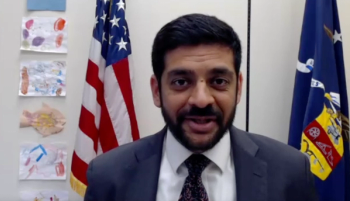
According to data from HHS' Office of Minority Health, Asian Americans are 60% less likely to utilize mental health services, even though 16.8% of those in the community experience mental illness.

Migvis Monduy, MD, medical director of Neuromuscular and Movement Disorders Programs at Nicklaus Children's Hospital, discussed the most promising areas of research in Duchenne muscular dystrophy (DMD), as well as the mechanisms of gene therapies for DMD.

In the final part of our interview with Binod Dhakal, MD, lead investigator of the CARTITUDE-4 study, he looks to the future of earlier treatment for relapsed/refractory multiple myeloma.

Ajay Goel, PhD, AGAF, discusses study findings that could help in earlier detection of lymph node metastases and colorectal cancer (CRC).

Monica Kraft, MD, ATSF, contributed to research on preexisting asthma and the influence it may have on the severity of long-term COVID-19 symptoms, with some patients with asthma experiencing worse respiratory symptoms but better physical functioning compared with patients without asthma.
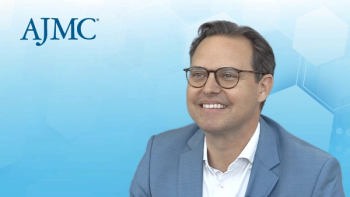
Michael Arzt, MD, investigated the use of ASV therapy in patients with TE-CSA and cardiovascular disease, finding it effective in reducing sleepiness and improving quality of life. It may be more suitable for some patients to be treated with ASV than CPAP due to its ability to automatically adjust pressure and potentially improve comfort.
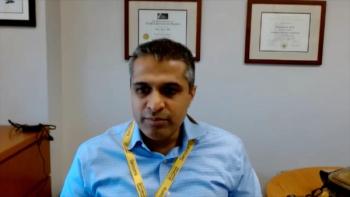
Ravin Ratan, MD, MEd, of The University of Texas MD Anderson Cancer Center, explains the origins of soft tissue sarcomas within the body—which account for 1% of cancers in adult patients—how they are classified, and how they differ from organ-based cancers.

Ajay Goel, PhD, AGAF, explains the significance of 2 new studies that found that early-onset colorectal cancer (EOCRC) and recurrence in CRC could both be predicted using new blood and tissue tests.

Julie Linton, MD, FAAP, immediate past chair of the American Academy of Pediatrics (AAP) Council on Immigrant Child and Family Health, discussed disparities within health care services impacting immigrant populations in the United States.

Jan Hedner, MD, PhD, finds sulthiame improves sleep quality and reduces daytime sleepiness in patients with sleep-disordered breathing (SDB), offering a potential alternative to continuous positive airway pressure (CPAP) machines. This highlights the growing field of non-CPAP treatments, with personalized medicine being a key focus for future research.

Vamorolone (Agamree) is a first-in-class corticosteroid to treat Duchenne muscular dystrophy (DMD) in patients 2 years and older.
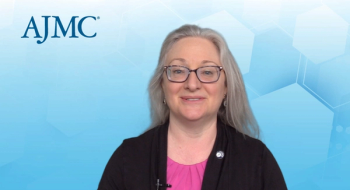
Kimberly Westrich, MA, chief strategy officer of the National Pharmaceutical Council, shares 3 key recommendations to improve the accuracy and quality of drug pricing data.
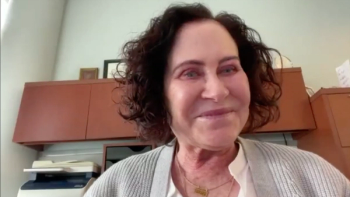
Amy Shapiro, MD, medical director, Indiana Hemophilia and Thrombosis Center, continues her discussion on plasminogen deficiency type 1 by highlighting the recent FDA approval of plasminogen (Ryplazim; Kedrion Biopharma), the first treatment specifically indicated for this disorder.
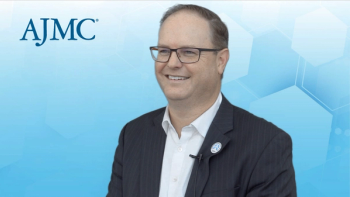
In research presented at the American Thoracic Society 2024 International Conference, Benjafield and colleagues explored the treatment of sleep-disordered breathing with adaptive sero-ventilation (ASV) in opioid users with central sleep apnea (CSA).

Promising results from a phase 2 trial of ENV-101, a novel hedgehog inhibitor, showed improvement in lung function and reduction of fibrosis in patients with idiopathic pulmonary fibrosis, said Paul Frohna, MD, PhD, PharmD.
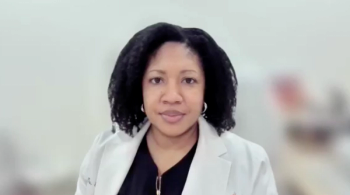
Chesahna Kindred, MD, MBA, FAAD, board-certified dermatologist, Kindred Hair & Skin Center, discusses ways to overcome barriers in clinical trials for diverse patients with psoriasis.
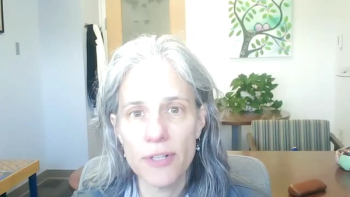
Debra Boyer, MD, MHPE, ATSF, chair of the American Thoracic Society (ATS) International Conference Committee, highlighted exciting keynote sessions on artificial intelligence in medicine, the history of intensive care units, and immigrant health care ahead of the ATS 2024 International Conference.

Kathryn Lindley, MD, FACC, Vanderbilt University Medical Center, shares what women can do to prioritize their heart health during National Women's Health Week and every week.
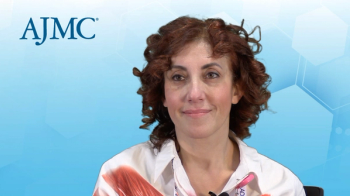
Mila Felder, MD, FACEP, emergency physician and vice president, Wellbeing for All Teammates, Advocate Health, discusses how to implement well-being into peer support within oncology care.
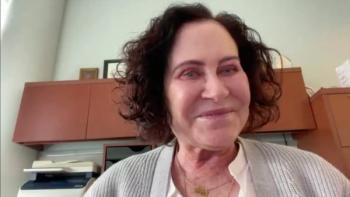
Amy Shapiro, MD, medical director of Indiana Hemophilia and Thrombosis Center, joined AJMC to shed light on a broadly overlooked disorder: plasminogen deficiency type-1.

Session speakers at the 2024 meeting of ISPOR—The Professional Society for Health Economics and Outcomes Research share their favorite parts of the conference.
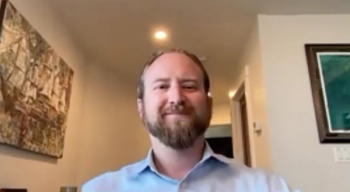
Chris Pagnani, MD, medical director and founder of Rittenhouse Psychiatric Associates in Philadelphia, explains the importance of offering college students consistent care via telehealth while collaborating with their campus counseling centers.

Speakers at the 2024 American Urological Association (AUA) annual meeting highlighted the innovations and advancements that are pushing the field of urology forward.

New therapies being developed are moving into earlier lines of therapy, with the idea that most patients with early-stage prostate cancer will progress and need additional therapy later.

In the series debut episode of "Frameworks for Advancing Health Equity," Mary Sligh, CRNP, and Chelsea Chappars, of Allegheny Health Network, explain how the Urban Health Outreach program aims to improve health equity for individuals experiencing homelessness.
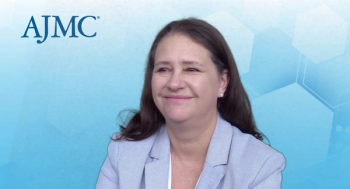
Phaedra Corso, PhD, associate vice president for research, Indiana University, discusses the importance of cost-effectiveness analysis in determining the feasibility and impact of public health interventions.

The Inflation Reduction Act (IRA) has potential to shift incentives for drug manufacturers and impact the amount of long-term evidence generated for approved drugs, said Julie Patterson, PharmD, PhD, senior director of research at the National Pharmaceutical Council.

259 Prospect Plains Rd, Bldg H
Cranbury, NJ 08512
© 2025 MJH Life Sciences®
All rights reserved.
